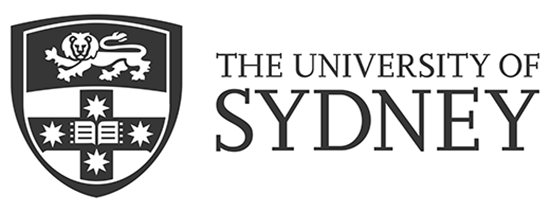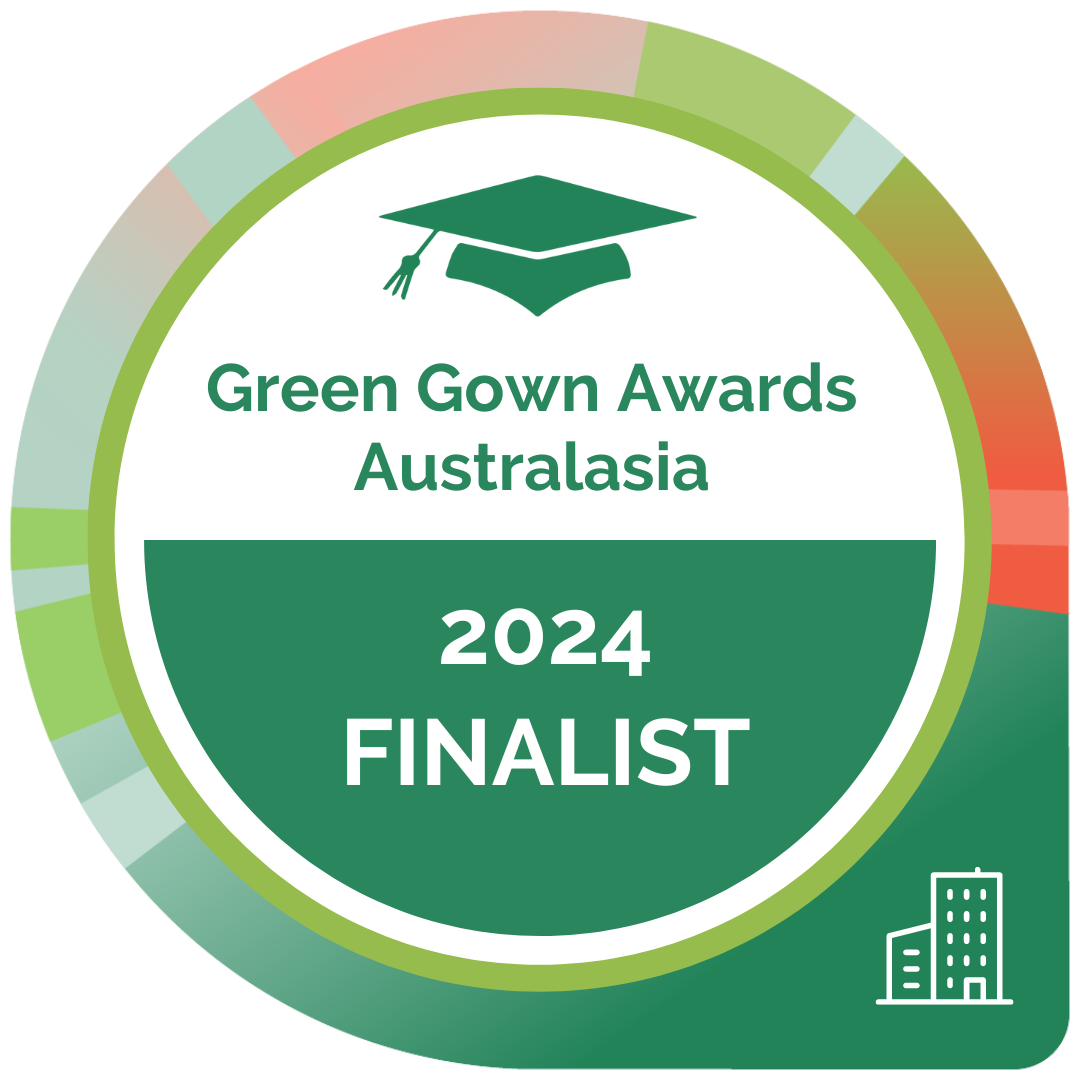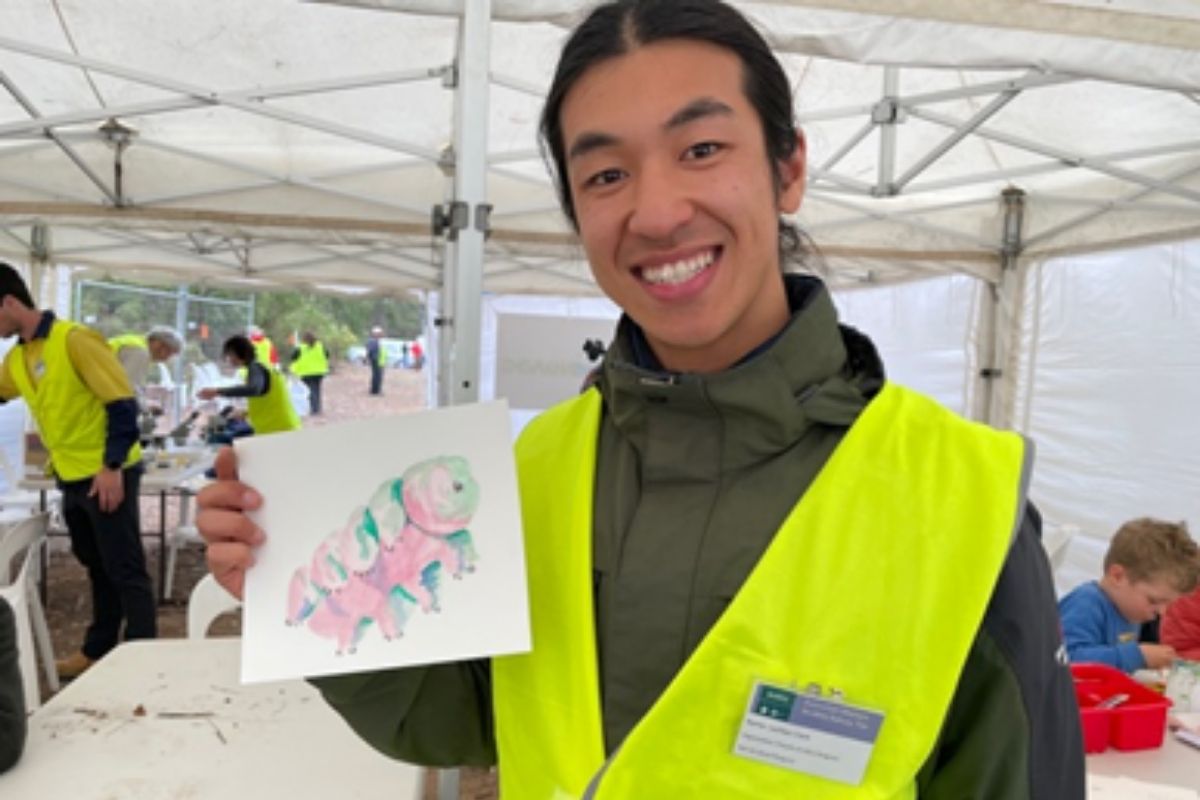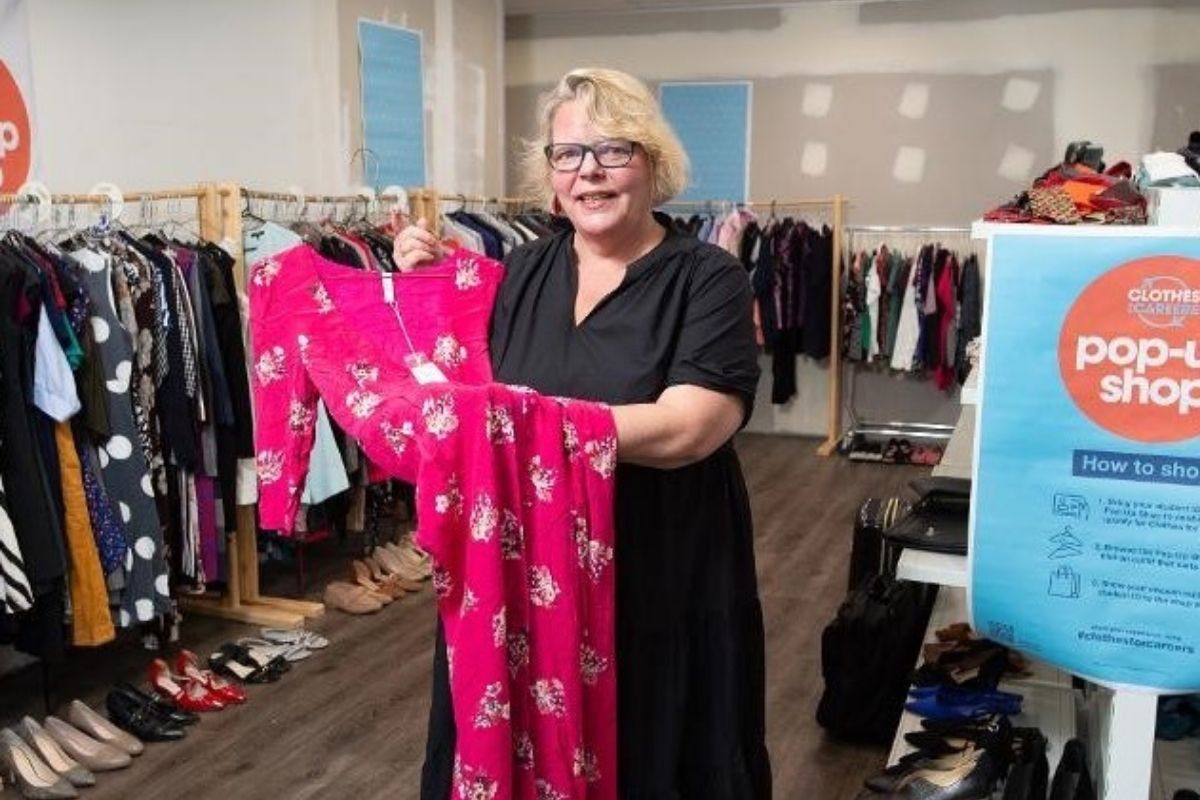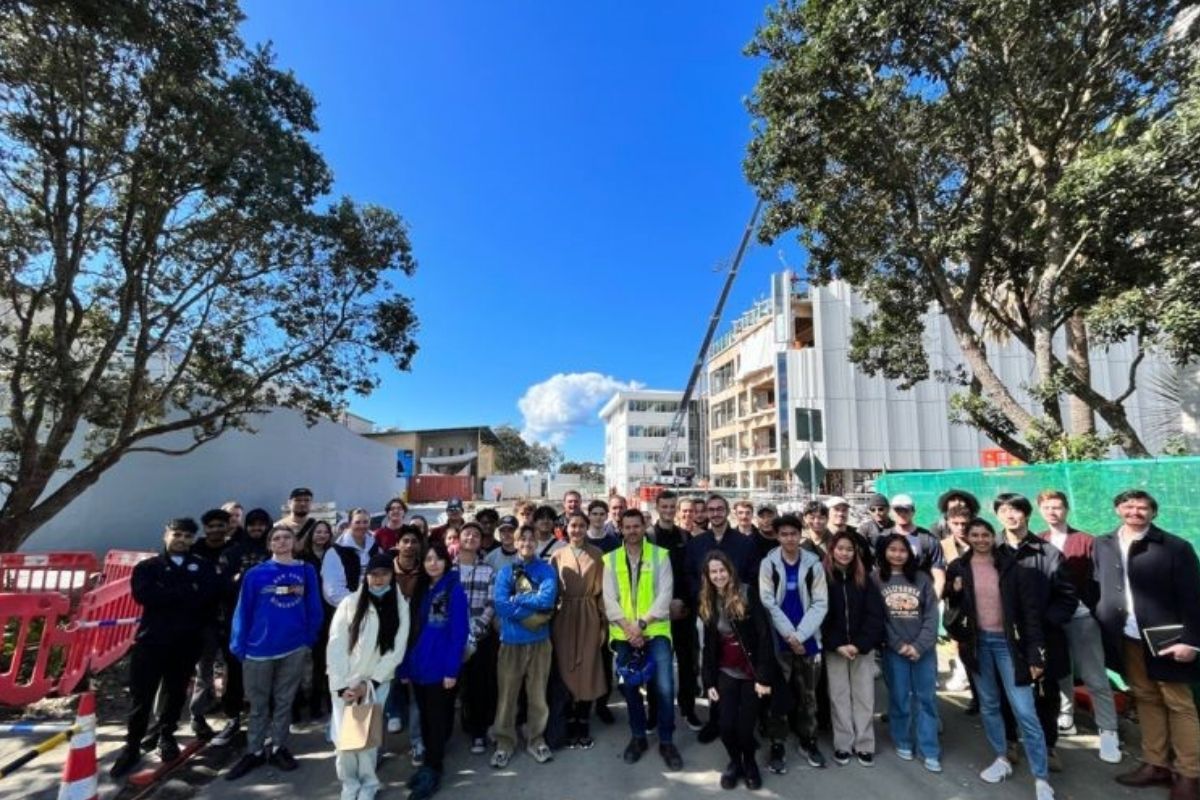Creating Impact category
Established in 2019, MyLab at the University of Sydney is a pioneering initiative that enhances the management of laboratory reagents used in research and education. MyLab is a comprehensive service that includes a digital platform to track the full lifecycle of these materials, supported by three distribution hubs on the Camperdown/Darlington campus. Staff at these hubs manage the receipt of orders, deliver products, and operate a chemical repository. The MyLab team have worked tirelessly to revolutionise laboratory sustainability on campus by offering innovative services such as a solvent decanting and reusable bottle service, a chemical reuse program and hard-to-recycle collection points to significantly reduce waste and promote sustainable practices.
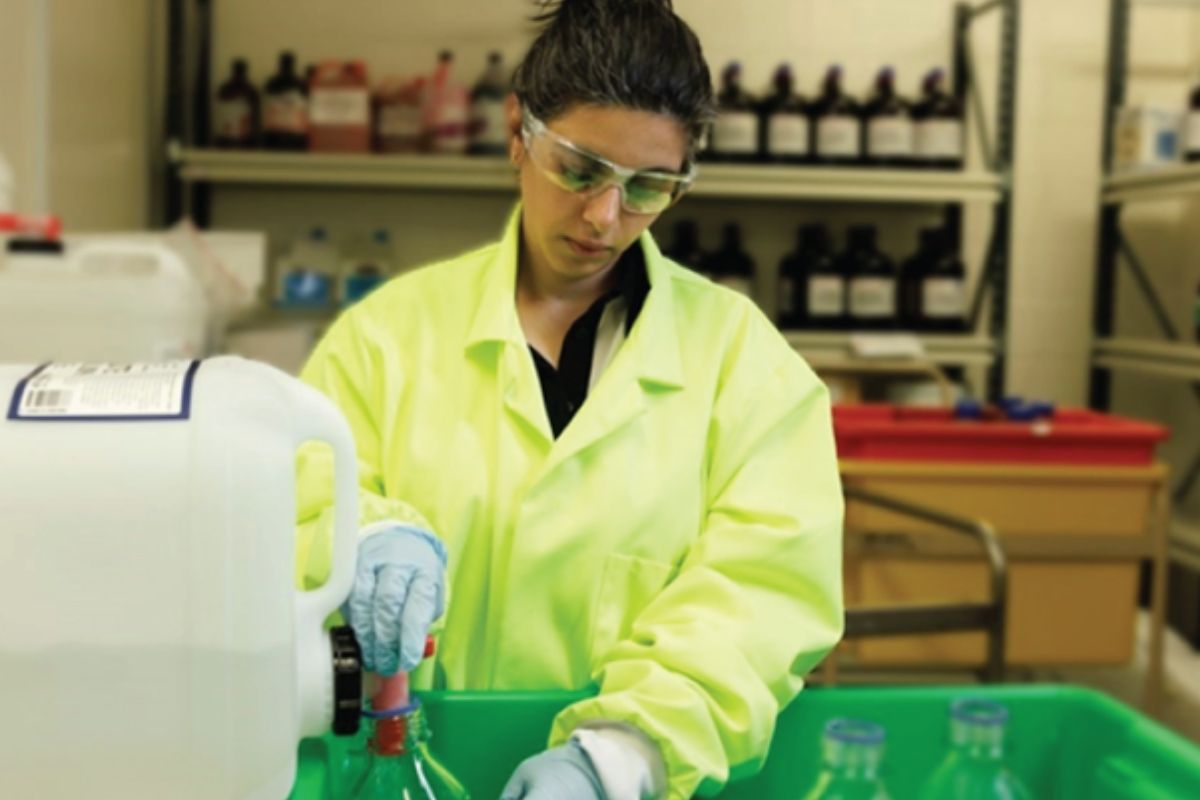
Environmental and Social Benefits
- Waste Reduction: MyLab’s solvent decanting and reusable bottle service prevented 11,483 bottles from ending up in landfill in 2023 alone. Additionally, 1,213 chemicals were reused through the chemical repository, reducing the need for new procurements and preventing hazardous waste disposal.
- Circular Economy Promotion: MyLab’s practices align with circular economy principles by extending the lifecycle of chemicals and reducing single-use plastic waste, thereby minimising environmental impact.
- Resource Conservation: The initiative enhances resource efficiency in laboratories, lowering operational costs through sustainable procurement and waste reduction strategies.
Leadership and Engagement
- Stakeholder Involvement: MyLab engages over 2,500 staff members and indirectly benefits thousands of students who use laboratory spaces across the university. The initiative fosters a culture of sustainability, promoting responsible consumption and waste reduction.
- Collaborative Approach: The project involves regular engagement with suppliers to stock sustainable products and encourage the reduction and reuse of packaging materials. This collaboration extends MyLab’s impact beyond the university, influencing supply chain practices.
- Educational Impact: MyLab integrates sustainability into the university’s educational framework by offering hands-on learning opportunities and promoting sustainable laboratory management among students and researchers.
Significance to the Sector
- Innovation and Leadership: MyLab’s digital platform is one of the first in Australia to manage the entire lifecycle of laboratory reagents, setting a new standard for sustainable laboratory management. The initiative’s success demonstrates how innovative practices can be implemented with limited additional resources, providing a replicable model for other institutions.
- Scalability and Replicability: MyLab’s success, achieved without dedicated sustainability funding, highlights its potential for replication across other universities and sectors. The initiative’s practical and scalable approach can be adapted to various contexts, promoting widespread adoption of sustainable laboratory practices.
Wider Societal Impact
- Environmental Stewardship: MyLab’s solvent decanting service and chemical reuse program contribute to environmental conservation by reducing waste and lowering greenhouse gas emissions. These efforts support broader sustainability goals and demonstrate the university’s commitment to environmental stewardship.
- Industry Influence: By engaging with suppliers and promoting sustainable practices, MyLab extends its impact beyond the university, influencing industry standards and encouraging the adoption of sustainable procurement practices in the research and education sectors.
- Future-Proofing: MyLab prepares students and researchers to be leaders in sustainable laboratory management, equipping them with the skills and knowledge necessary to drive sustainability in their future careers.
“MyLab: Innovating Sustainable Solutions for Research” at the University of Sydney highlights a transformative approach to laboratory management, combining innovation, sustainability, and operational efficiency. Through its comprehensive services and commitment to sustainable practices, MyLab not only reduces environmental impact but also sets a new standard for academic institutions. The initiative’s success demonstrates the power of integrating sustainability into core operations and provides a replicable model for other universities and research institutions globally.
Top 3 learnings
Supported by

Category finalists
Creating Impact/Winners
Creating Impact/Winners
Past winners
Benefitting Society/Winners
Benefitting Society/Winners
Diversity, Equity & Inclusion in Sustainability/Winners
Diversity, Equity & Inclusion in Sustainability/Winners
Climate Action/Winners
Climate Action/Winners
Sustainability Institution of the Year/Winners
Sustainability Institution of the Year/Winners
Creating Impact/Winners
Creating Impact/Winners
Creating Impact/Winners
Creating Impact/Winners
Top 3 learnings
Creating Impact category
Established in 2019, MyLab at the University of Sydney is a pioneering initiative that enhances the management of laboratory reagents used in research and education. MyLab is a comprehensive service that includes a digital platform to track the full lifecycle of these materials, supported by three distribution hubs on the Camperdown/Darlington campus. Staff at these hubs manage the receipt of orders, deliver products, and operate a chemical repository. The MyLab team have worked tirelessly to revolutionise laboratory sustainability on campus by offering innovative services such as a solvent decanting and reusable bottle service, a chemical reuse program and hard-to-recycle collection points to significantly reduce waste and promote sustainable practices.

Environmental and Social Benefits
- Waste Reduction: MyLab’s solvent decanting and reusable bottle service prevented 11,483 bottles from ending up in landfill in 2023 alone. Additionally, 1,213 chemicals were reused through the chemical repository, reducing the need for new procurements and preventing hazardous waste disposal.
- Circular Economy Promotion: MyLab’s practices align with circular economy principles by extending the lifecycle of chemicals and reducing single-use plastic waste, thereby minimising environmental impact.
- Resource Conservation: The initiative enhances resource efficiency in laboratories, lowering operational costs through sustainable procurement and waste reduction strategies.
Leadership and Engagement
- Stakeholder Involvement: MyLab engages over 2,500 staff members and indirectly benefits thousands of students who use laboratory spaces across the university. The initiative fosters a culture of sustainability, promoting responsible consumption and waste reduction.
- Collaborative Approach: The project involves regular engagement with suppliers to stock sustainable products and encourage the reduction and reuse of packaging materials. This collaboration extends MyLab’s impact beyond the university, influencing supply chain practices.
- Educational Impact: MyLab integrates sustainability into the university’s educational framework by offering hands-on learning opportunities and promoting sustainable laboratory management among students and researchers.
Significance to the Sector
- Innovation and Leadership: MyLab’s digital platform is one of the first in Australia to manage the entire lifecycle of laboratory reagents, setting a new standard for sustainable laboratory management. The initiative’s success demonstrates how innovative practices can be implemented with limited additional resources, providing a replicable model for other institutions.
- Scalability and Replicability: MyLab’s success, achieved without dedicated sustainability funding, highlights its potential for replication across other universities and sectors. The initiative’s practical and scalable approach can be adapted to various contexts, promoting widespread adoption of sustainable laboratory practices.
Wider Societal Impact
- Environmental Stewardship: MyLab’s solvent decanting service and chemical reuse program contribute to environmental conservation by reducing waste and lowering greenhouse gas emissions. These efforts support broader sustainability goals and demonstrate the university’s commitment to environmental stewardship.
- Industry Influence: By engaging with suppliers and promoting sustainable practices, MyLab extends its impact beyond the university, influencing industry standards and encouraging the adoption of sustainable procurement practices in the research and education sectors.
- Future-Proofing: MyLab prepares students and researchers to be leaders in sustainable laboratory management, equipping them with the skills and knowledge necessary to drive sustainability in their future careers.
“MyLab: Innovating Sustainable Solutions for Research” at the University of Sydney highlights a transformative approach to laboratory management, combining innovation, sustainability, and operational efficiency. Through its comprehensive services and commitment to sustainable practices, MyLab not only reduces environmental impact but also sets a new standard for academic institutions. The initiative’s success demonstrates the power of integrating sustainability into core operations and provides a replicable model for other universities and research institutions globally.
Supported by

Related finalists
Creating Impact/Winners
Creating Impact/Winners
Other finalists
Climate Action

Driving Towards Tomorrow’s Campus with Vehicle-to-Grid EV Technology
As part of Flinders University’s drive to innovate and become a leader in climate action, the University launched its Vehicle-to-Grid (V2G) initiative. This involved installing and maintaining 20x V2G and smart chargers for its growing electric vehicle fleet. Leveraging 100% renewable energy generated by ENGIE’s Willogoleche Wind Farm and Flinders University’s solar power systems, this enables the storage of renewable energy in EV batteries to be discharged on campus during peak demand periods. Hence, allows for these EV fleets to operate as a Virtual Power Plant (VPP) to deliver peak demand management and optimization of behind-the-meter generation.
Overall, this initiative demonstrates the reliability and scalability of bi-directional and uni-directional smart-charging systems for EVs in reducing GHG emissions while facilitating teaching, research, and innovation opportunities. Moreover, it exemplifies a sustainable and innovative solution to scale energy storage technology and increase renewables.
Sustainability Champion – Staff/Winners

Brandan Espe
Environmental Officer / Acting Grounds Supervisor
Brandan has brought over 50 federally listed Endangered species of plant into the James Cook University living collection, many of which have never been cultivated and are found in no other collection in the world.
Of these, over half have been sustainably wild collected, inclusive of field and clone data, so they can be used for ongoing conservation, research and teaching, the remaining being sourced from private and partner organisations through favours of service or trades.
He personally funded the project from 2019-2022, until funding was awarded for the program due to its success, with the program now being engrained into the Universities landscapes for ongoing management should he leave JCU, creating a threatened species legacy collection.
The program has now expanded beyond this, with an additional 48 species now funded for further addition, some of which are only known from less than 5 sightings in history.
Student Engagement

Sustainability Leaders creating real impact!
La Trobe created a unique Sustainability Leaders volunteering program to increase engagement with students on campus and empower them to act against waste and promote sustainability. It included the following initiatives:
- Promoting the reusable crockery implementation,
- Increasing knowledge action of other students on campus to diversion comingled recycling and organic waste from landfill.
- Focus on waste audits and data,
- Improved signage through new waste posters for students living on campus.
- Collaboration with Cirka (our cleaning and waste partner) to create a waste wall and;
- Learning all things sustainability (net zero, biodiversity, waste, reusables, engagement)
These initiatives yielded significant results and with a reduction in waste contamination by almost 40% at the residential buildings and engagement with over 80 groups of people for the Reusable Revolution.
Creating Impact

Where knowledge meets habits: Empowering students for a sustainable tomorrow
Our online Sustainability Challenges offer participants an engaging, self-paced learning experience centered around a specific United Nations Sustainable Development Goal (UNSDG). Requiring minimal resourcing and at zero-cost to participants, we’ve created replicable, compact, scalable, and impactful learning opportunities that result in real impact.
The Challenges follow a structured process that moves participants from knowledge gain to simple action to celebration, to establish small but mighty habits relating to waste and carbon emissions. This approach recognises that knowledge alone is often insufficient to drive behaviour change, and that ease of action and celebration are crucial components in creating sustainable habits.
Sustainability Champion – Staff/Winners

Catherine (CeeJay) Donovan
Veterinary nurse – Anaesthesia
From establishing the Massey Vet School Green Team to leading impactful initiatives, my commitment to environmental sustainability has been making waves. With the help of my team, I have accomplished numerous small, yet meaningful actions, including integrating a sustainability lecture for final year vet students and implementing battery recycling alongside rechargeable battery use. Our larger projects encompass the introduction of green waste and soft plastics recycling bins, an energy audit resulting in power-saving measures, and playing a part in a successful rubbish audit. I spearheaded the ‘6 in 6’ campaign, empowering individuals with six simple steps for workplace sustainability. Through the SustainaVet social media pages I help to educate and inspire peers nationwide. As the Massey School of Veterinary Science sustainability champion, I had the privilege of speaking at the annual veterinary conference on sustainability in clinical practice. Currently I’m conducting pioneering research on responsible cat waste disposal. Together, we’re forging a greener future, one initiative at a time.
Sustainability Champion – Student

Louis Walmsley
SDG Coordinator Monash Association of Sustainability, Office Bearer Monash Student Association’s Environmental and Social Justice Department, Masters of Environment and Sustainability Student
Louis is an exceptional student sustainability leader at Monash University. His passion and dedication to sustainability have made a significant impact on the community. Louis’s values revolve around sustainability, which is evident upon meeting him. He actively participates in various sustainability groups, demonstrating his commitment to creating a more environmentally conscious society.
One of Louis’s notable involvements is with Precious Plastic Monash, where he organizes remarkable events and fosters collaboration among like-minded individuals, student groups, and staff. His contributions to the Monash Association of Sustainability have allowed him to conduct valuable research on plastic usage and climate action, resulting in positive changes within the university.
Through his work with the Monash Student Association, Louis has engaged hundreds of students in fun and interactive sustainability initiatives. He took the initiative to organize a sustainability food fair, which was one of the largest sustainability-related events held at Monash post-COVID. This accomplishment is a true testament to Louis’s hard work and creativity.
Louis is an outstanding student leader whose efforts in sustainability have had a lasting impact on Monash University and its community. His inspiring nature resonates with everyone who knows him.

